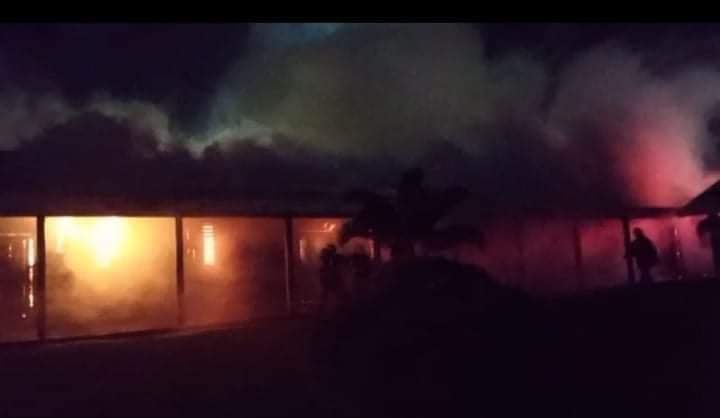Since the start of 2023, the World has faced an upsurge in dengue transmission. The Region of the Americas is among the regions reporting the highest number of cases ever registered, with over 4.1M cases. Dengue is endemic in Latin America & the Caribbean, however, during the current season, the observed level of increase in dengue is above the average number of cases recorded in the last five years and beyond historical areas of transmission. This data is based on WHO’s situation update issued on December 8, 2023. In St. Kitts & Nevis, the situation is no different. During 2023, the MOH has reported 185 laboratory confirmed cases of dengue with 47 cases for St. Kitts and 138 cases for Nevis.
Dengue viral infection is caused by the dengue virus (DENV) that is maintained in a cycle that involves humans and the Aedes aegypti mosquitos which are prevalent in the Federation. There are four distinct serotypes of dengue – DENV-1, DENV-2, DENV-3 & DENV-4. DENV -2 & DENV-3 are currently in circulation in the Federation. The Aedes aegypti mosquitos can become infected with the virus after biting individuals infected with DENV and these infected mosquitos can then spread the virus to others in the same household and in the same community leading to clusters. Therefore, it is imperative that the Ministry of Health (MOH), continues its Integrated Vector Management to control the mosquitos and contain the spread of dengue. The Ministry’s vector control strategies include source reduction and environmental management in an effort to remove potential mosquito breeding sites, reduce vector populations and minimize individual exposure. The environmental health officers from the MOH have been and will continue to visit homes in the communities. Please facilitate their visits and collaborate with the health team to eliminate mosquito breeding sites in our homes and communities.
Dengue is a flu-like illness that can affect anyone. Symptoms usually begin four to ten days after being bitten by a dengue infected mosquito and include high fever, headaches, pain behind the eyes, muscle and joint pains and skin rash. Persons who have chronic medical conditions and
who are experiencing dengue-like symptoms should see their regular doctor at the soonest. The viral illness can evolve into severe dengue, characterized by vascular leakage, hemorrhagic/bleeding manifestations, low platelet counts and hypotensive shock. Persons experiencing continuous abdominal pain, persistent vomiting and mucosal bleeding should access urgent medical care at the nearest hospital.
The most effective way to avoid getting dengue is to prevent mosquito bites. We can mitigate the impact and spread of Dengue by taking the following twelve (12) actions including:
1. Personal protective measures during outdoor activities include application of topical mosquito repellents to exposed skin or clothing.
2. Wear protective clothing like long pants and long-sleeved tops.
3. In-door protection including use of approved household insecticide aerosol products or mosquito coils and bed nets if mosquitos are prevalent.
4. Use window and door screens to reduce probability of mosquitos entering the house.
5. Protect your homes, schools and offices by disposing of all bottles, cans, and water holding containers in an approved refuse bin with appropriate covers.
6. Change and replenish water in vases daily.
7. Change and replenish pet and animal drinking containers daily.
8. Keep lawn, grass and vegetation trimmed. Owners & caretakers of empty lots have a responsibility to keep vegetation trimmed.
9. Tyre operators should store all used and new tyres in a dry place.
10. Jelly/coconut operators should adequately dispose of empty coconut shells at the end of each workday.
11. Report any body of stagnant water to the local Health Department.
12. If you are experiencing – fever, joint pains, pain behind eyes and a rash, you should seek medical care at the nearest health facility.
Ladies & gentlemen, let us do our part to reduce the mosquito breeding sites and to contain the spread of Dengue. Let us take action to maintain the health and wellness of our people as we approach Christmas & Carnival. Merry Christmas & Happy New Year!
Dr. Hazel Laws
Office of the Chief Medical Officer









